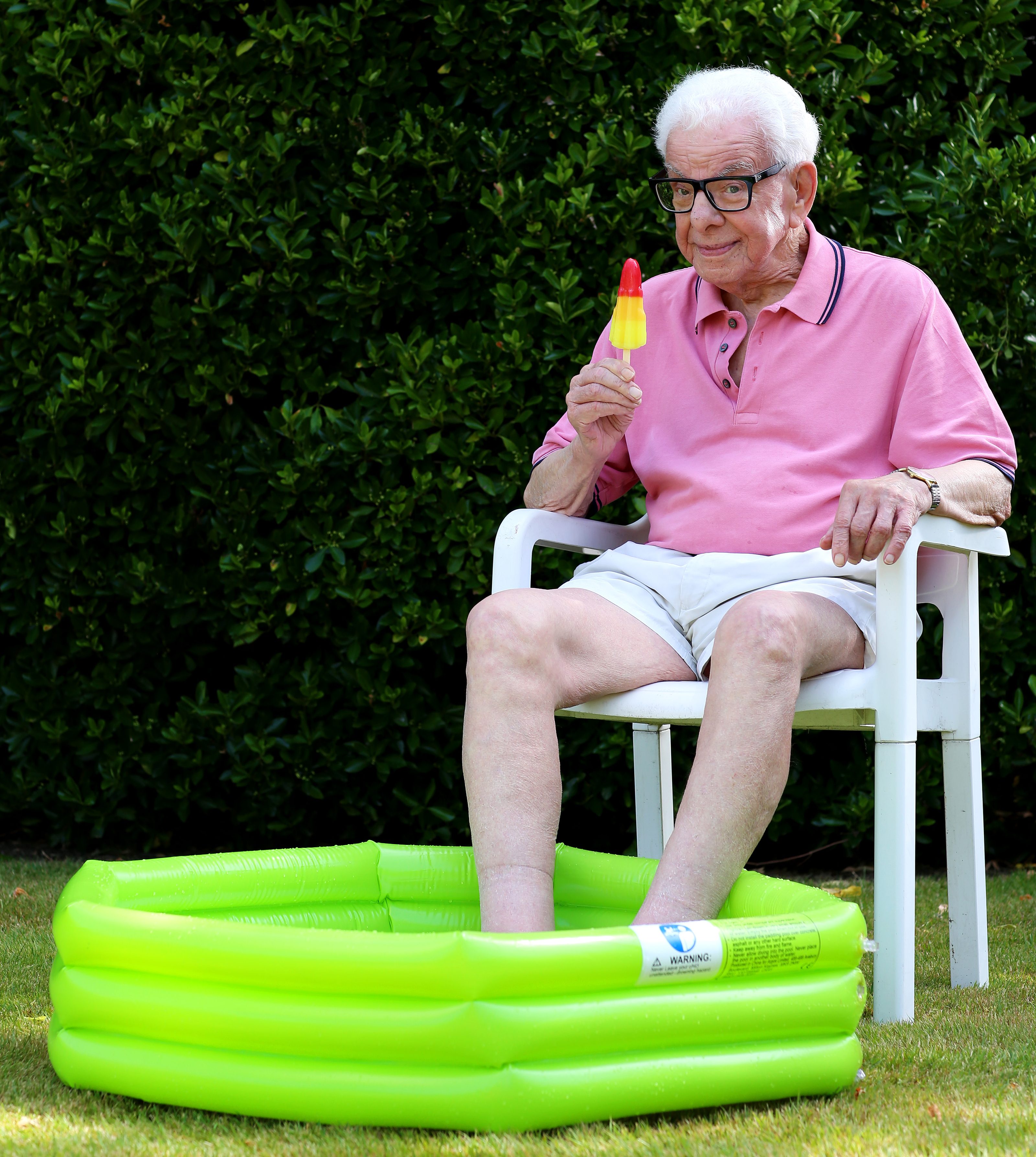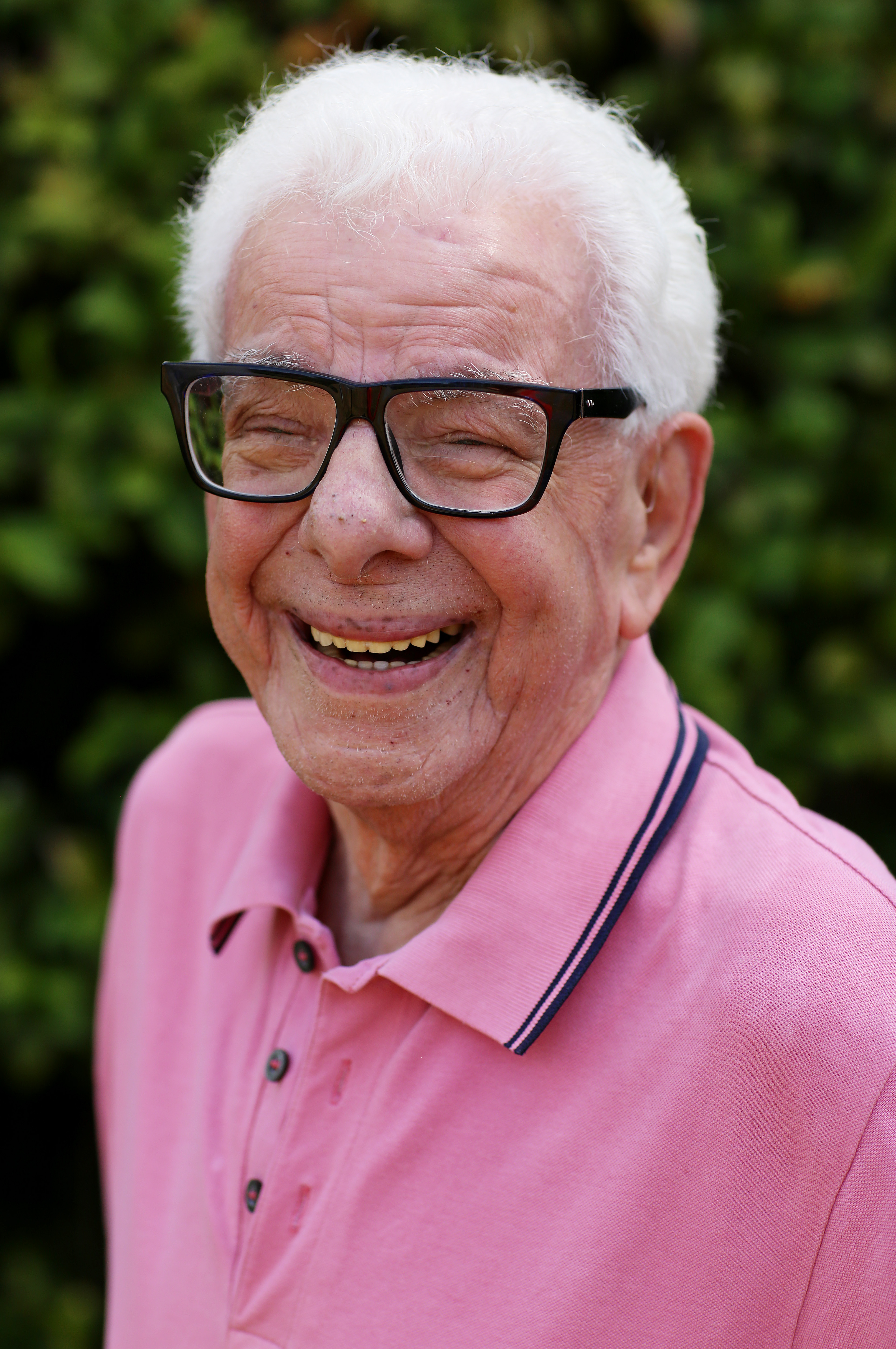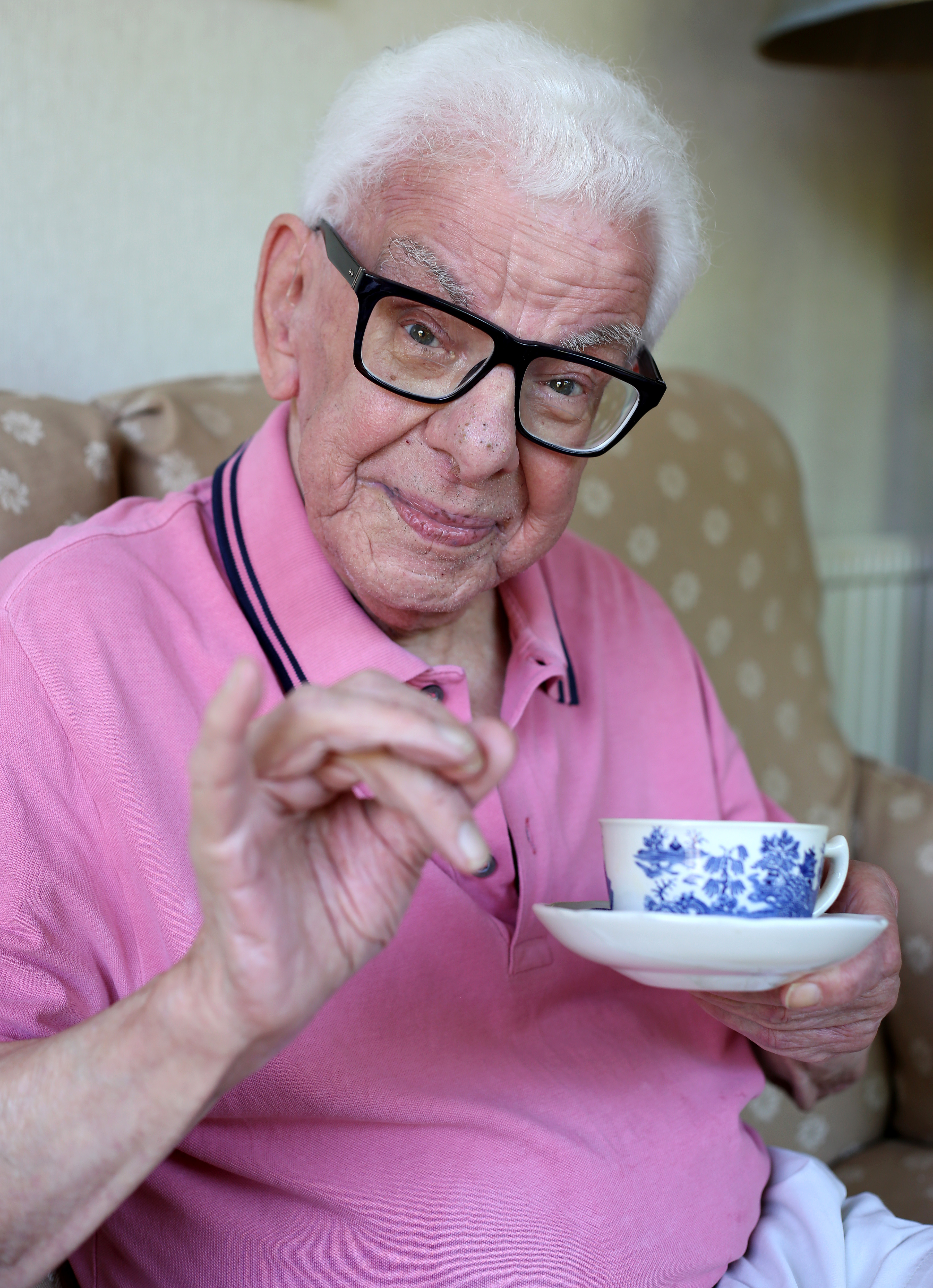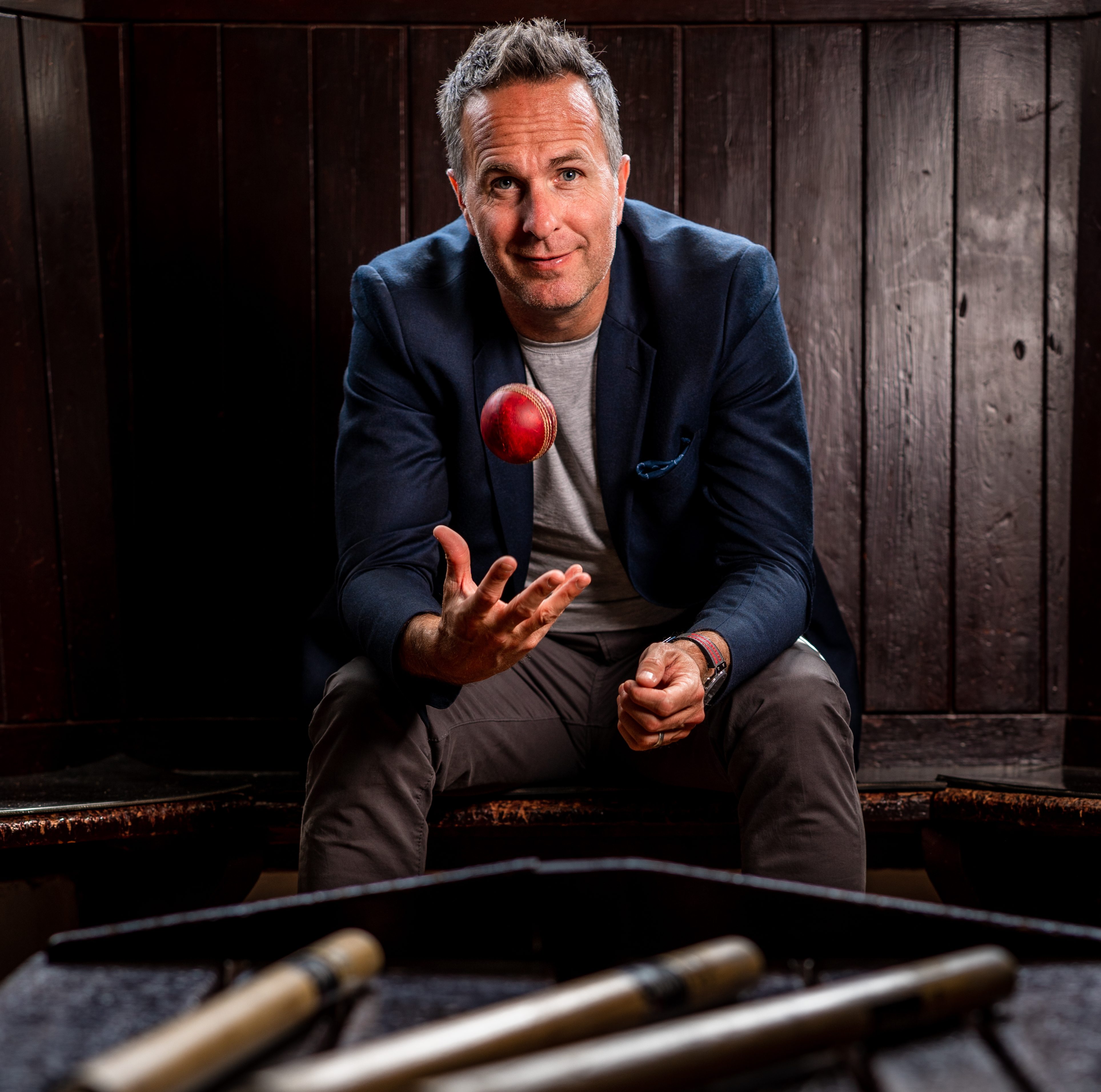Barry Cryer: An anecdotal stroll through decades of comedic performance on stage, radio and TV
The peerless Barry Cryer on self-obsessed humour, an eczema cure and Boris Johnson.


The sad news reached us on January 27, 2022, that the comedian, writer and iconic game show panellist Barry Cryer has died at the age of 86. Our thoughts are with Barry's family and friends.
Barry had spent decades in show business in Britain, working mostly as a writer for legendary comedians including Morecambe & Wise, David Frost, Bob Hope, Richard Pryor, Spike Milligan, Dave Allen, Tommy Cooper and many more. He was also one of the best-loved voices on Radio 4's comedy panel shows, especially I'm Sorry I Haven't a Clue, which he first appeared on in 1972.
We spoke to Barry a couple of years ago, and in tribute to his wit and wisdom we're repeating the article below, which appeared originally in August 2019.
Barry Cryer describes himself as a university dropout: ‘I was supposed to be studying English Literature at Leeds, but I was in the bar and chasing girls and my first-year results showed it. So I’m “BA Eng. Lit. failed” of Leeds.’
That may be so, but he’s got a doctorate in the art and history of comedy. A chat with Mr Cryer is an anecdotal stroll through decades of comedic performance on stage, radio and TV.
No wonder the British Music Hall Society honoured him with a life-time achievement award last year.
‘I had a half-baked idea of becoming a journalist before I got pitchforked into this business, but before any of that, I used to listen to Max Wall on the radio. People know he was astonishing visually, but that voice!’
Exquisite houses, the beauty of Nature, and how to get the most from your life, straight to your inbox.
Then there was the fabled Max Miller. ‘My mother took me to see him on one of his rare forays north, at the Empire, Leeds. She just sat there twinkling through his entire performance. He was a naughty boy, you see. He played to the women in the audience.
‘Years later, after I’d come down to London, I worked with him. He walked in wearing his stage costume, one of those extra-ordinary floral-patterned suits, for what was only a radio broadcast. I was in awe. He said “All right, son? I know, I know. I can’t work in ordinary day clothes”.’

Mr Cryer recently presented an eight-part Sky Arts documentary called Comedy Legends. They filmed it in the kitchen we’re sitting in. It went down so well that another series is in the offing. One of the finest raconteurs around, he is the polar opposite of a stereotypicaltaciturn Yorkshireman, although he doesn’t suffer foolish questions. He admits he prefers talking about other people: ‘I’m not my favourite subject.’
Mr Cryer cut his teeth in an era when to be a comedian was to be an all-rounder. Although insisting things weren’t better in his time, he’s right to pinpoint the loss of a particular comic archetype, the one who made you laugh simply by walking on stage or in front of a camera.
‘There are many brilliant comedians around now, but what I miss is sheer fun. Eric Morecambe and Ernie Wise, Arthur Haynes and Tommy Cooper – grown men being silly.
‘You see a lot of intelligence and wit today, but with the current comedy generation, it’s my life, what happened to me and observations on life.
We talked about other people, told jokes and sang songs.’
His old friend Humphrey Lyttleton used to tell him ‘never lose touch with silly’. The pair’s acquaintance went back a lot further than working on the Radio 4 show I’m Sorry I Haven’t A Clue to Mr Cryer’s jazz-loving student days in the mid 1950s. ‘I was singing outside Leeds Town Hall with the university jazz band and he was there for a show later that evening.
‘He’d become a star around then, thanks to the success of Bad Penny Blues. A bit later, he walked over to me and said: “I heard you earlier.” I preened myself. “It wasn’t difficult,” he continued. “You were quite loud.”’
Mr Cryer’s stand-up performing career was interrupted in the early 1960s by eczema, a problem that saw him hospitalised 12 times in eight years. He attributes his recovery to meeting his future wife, Terry Donovan, a singer and dancer. He fell for her immediately on catching sight of her standing beside a piano at a Piccadilly nightclub in 1960. ‘I was only in hospital once more after meeting her.’
'Where is Spitting Image when you need it? We must learn how to get angry again'
The pair are still together nearly 60 years later. The secret of their success? ‘We don’t understand each other at all.’
Deciding to concentrate on writing after his illness, the comedian, ‘a terminally gregarious peopleaholic’ in his own words, didn’t exactly retreat to the attic. ‘I hardly ever wrote alone. People often say to me “you wrote for everybody”, but I say “we wrote for everybody”.’
The distinguished partnership list includes Graham Chapman, David Nobbs, Dick Vosburgh, Ray Cameron and even a vain attempt at working with Johnny Speight, ‘but he was a lone wolf’.
Although Mr Cryer says he has not written with a partner for years, he still writes. He hosts The Oldie lunches, at which he introduces guest authors with a poem he’s written specially for them. His friend Jeremy Nicholas recently challenged him to write a limerick on Boris Johnson for his new book.
Mr Cryer cannot hide his dismay at the rise of this individual to the highest political office in the land and our passive acceptance of it. ‘Theoretically, it’s wonderful joke territory, and [Radio 4’s] Dead Ringers has been hilarious, but where is Spitting Image when we need it? Can you imagine Trump, Farage and Johnson puppets? As somebody wrote the other day, we must learn how to get angry again.’

It’s either that or a retreat into the zany world of I’m Sorry, which Mr Cryer has been with since its launch in 1972. ‘We’re like an old rock band. We did one show in Bristol and 3,000 turned up. That Radio 4 public is amazing and they’re not all old or older people. I talk to youngsters who love it because it’s not endless music, it’s people actually talking.’
As is fellow panellist Graeme Garden, he’s rationing appearances: ‘When you get older, the travelling really gets to you.’
Mr Cryer is still doing his stage shows with I’m Sorry pianist Colin Sell, a testament to his unsinkable professional trooper disposition, as he’s currently recovering from a nasty fall on a slippery pavement, which resulted in a broken femur.
‘One minute, you’re walking along, then, bang, your life is changed in a second,’ he reflects, ‘but this has reminded me I’m up to here with friends. When I was in hospital, with all the family and other people who turned up, I found myself thinking, well, on balance, it was worth it.’

Michael Vaughan on the Ashes: 'You end careers in Ashes cricket'
Jack Watkins has written on conservation and Nature for The Independent, The Guardian and The Daily Telegraph. He also writes about lost London, history, ghosts — and on early rock 'n' roll, soul and the neglected art of crooning for various music magazines
